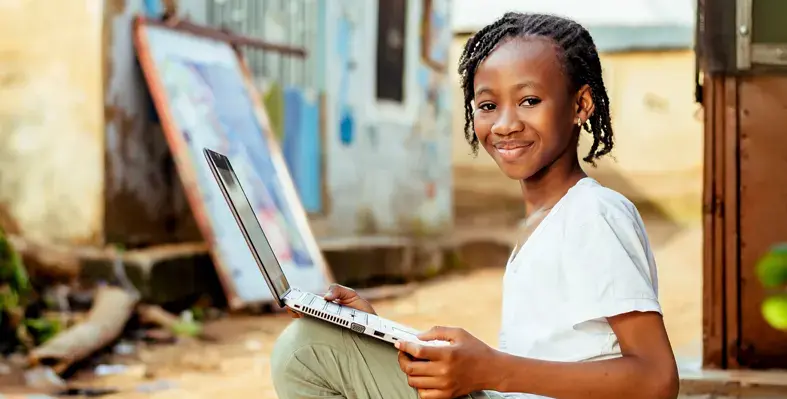Empowering young women in technology, the African Girls Can Code Initiative (AGCCI) is bridging the digital gender gap in Tanzania
Through coding camps and mentorship, participants like Annagrace Malamsha and Flora Kagoma are gaining the skills to transform their careers and communities, proving that the future of ICT is inclusive.
“The AGCCI Coding Camp has been a life changer, and a core part of shaping my perception on pursuing careers within the Tech space,” said Malamsha.
She and Flora Kagoma are among 100 young women in Tanzania who exemplify the impact of the AGCCI “Binti Dijitali” program, which is transforming opportunities for girls in the country.
AGCCI is implemented by UN Women in partnership with the Ministries of Gender, ICT, and Education in both Mainland Tanzania and Zanzibar, along with the African Union Commission and the International Telecommunication Union. Supported by the Government of Belgium, the program focuses on equipping young women aged 17 to 25 with coding and digital literacy skills.
During its initial phase (2018–2021), AGCCI trained more than 600 young women across 32 African nations, helping them build careers and develop innovations in ICT. The second phase, backed by the Government of Belgium and executed in collaboration with schools, NGOs, private sector entities, and government agencies, expanded the initiative to 11 countries, including Tanzania. Over 1,000 girls benefited from intensive coding camps covering fundamental programming skills and hands-on digital training.
According to UN Women Programme Specialist for Women’s Economic Empowerment, Lilian Mwamdanga, the initiative is designed to bridge the gender gap in digital skills, ensuring women and girls can remain competitive in the evolving job market.
"Information and Communication Technology (ICT) is emerging as a powerful tool for economic empowerment, creating opportunities in employment, entrepreneurship, and innovation. Yet, despite rapid digital advancements, women remain underrepresented in the tech sector,” she said. “By empowering them with the skills they need, we can help bridge this gap and create a more inclusive digital economy, where women and girls can contribute towards driving innovation and economic growth.”
After completing the coding camp, Malamsha applied her newly gained expertise to shift her career focus, integrating digital marketing into her professional journey.
“I was able to use what I learned from the coding camp to work as a freelance graphics designer, brand manager and social media manager.”
Since her participation in the programme, she has remained committed to giving back to her community. Her efforts include engaging in international initiatives that empower women and offering digital marketing training. She also co-founded SHEWORKS in Tech, an organization dedicated to setting up digital clubs in secondary schools to equip young innovators with essential skills.
“I want girls to know that coding and working in the ICT sector is not reserved for men,” Annagrace insisted. “We must challenge the status quo and address the gender divide, one training session at a time.”






















